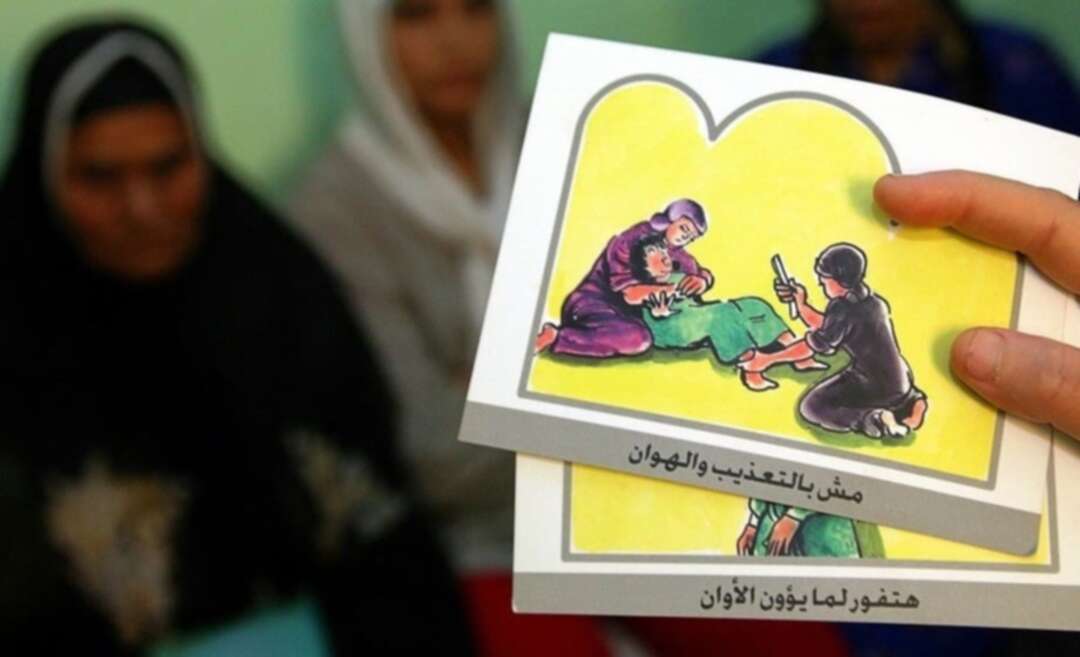-
Egypt toughens punishment for FGM, increases prison term to 20 years

Egypt has toughened penalties for female genital mutilation (FGM), imposing prison terms of up to 20 years in a push to end the ancient practice.
It is the second time Egypt’s parliament has cracked down on FGM - which typically involves the removal of a girl’s external genitalia - but activists remain skeptical about enforcement in a country where cutting is deep-rooted and widespread.
“It’s fantastic news that Egypt has strengthened its law on FGM again. However, unless the government takes it seriously this time, nothing is likely to change,” Brendan Wynne, co-founder of The Five Foundation advocacy group, told the Thomson Reuters Foundation on Monday.
“Medical professionals are still performing FGM in Egyptian clinics - and even offering their services publicly,” said Wynne by email from his group’s New York headquarters.
Most of the 28 countries in Africa where FGM is endemic have banned FGM, although enforcement is generally weak.
World leaders have pledged to end FGM by 2030, but the practice remains as common as it was 30 years ago in Somalia, Mali, Gambia, Guinea Bissau, Chad and Senegal.
In Egypt, the government and civil society groups have tried awareness campaigns, field visits and tougher penalties.
But Wynne said perpetrators are rarely held to account - particularly in rural areas, where FGM is more entrenched.
“We need to see a few high profile cases of doctors being given long sentences and struck off for performing this horrific act of violence. Unless this happens it doesn’t really matter what type of law there is,” he said.
Amendments approved on Sunday include increasing the maximum sentence from seven years and banning medics involved in FGM from practicing for up to five years.
Under the changes, prison terms of five to 20 years will be recommended, depending on who performed surgery and whether it caused permanent damage or death, a government statement said.
Whoever requested the FGM - usually a close family member - will also face imprisonment, according to the amendments, which must still be approved by the president.
Nearly 90 percent of Egyptian women and girls aged 15 to 49 have undergone FGM, according to a 2016 survey by the United Nations, in a ritual practiced widely by Muslims and Christians.
Entessar El-Saeed, a woman’s rights activist and director of the Cairo Foundation for Development and Law, said stricter penalties alone would not sway minds.
“It is a good step, but we are still struggling with a deeply-rooted concept in the Egyptian society and even among some doctors and judges that FGM is not (a) crime,” El-Saeed told the Thomson Reuters Foundation.
Egypt has struggled to stamp out FGM since 2008, when its parliament first passed a law to criminalize a practice some researchers have traced back to Egypt in the fifth-century BC.
source: Reuters
Image source: Reuters
Levant
You May Also Like
Popular Posts
Caricature
BENEFIT Sponsors BuildHer...
- April 23, 2025
BENEFIT, the Kingdom’s innovator and leading company in Fintech and electronic financial transactions service, has sponsored the BuildHer CityHack 2025 Hackathon, a two-day event spearheaded by the College of Engineering and Technology at the Royal University for Women (RUW).
Aimed at secondary school students, the event brought together a distinguished group of academic professionals and technology experts to mentor and inspire young participants.
More than 100 high school students from across the Kingdom of Bahrain took part in the hackathon, which featured an intensive programme of training workshops and hands-on sessions. These activities were tailored to enhance participants’ critical thinking, collaborative problem-solving, and team-building capabilities, while also encouraging the development of practical and sustainable solutions to contemporary challenges using modern technological tools.
BENEFIT’s Chief Executive Mr. Abdulwahed AlJanahi, commented: “Our support for this educational hackathon reflects our long-term strategic vision to nurture the talents of emerging national youth and empower the next generation of accomplished female leaders in technology. By fostering creativity and innovation, we aim to contribute meaningfully to Bahrain’s comprehensive development goals and align with the aspirations outlined in the Kingdom’s Vision 2030—an ambition in which BENEFIT plays a central role.”
Professor Riyadh Yousif Hamzah, President of the Royal University for Women, commented: “This initiative reflects our commitment to advancing women in STEM fields. We're cultivating a generation of creative, solution-driven female leaders who will drive national development. Our partnership with BENEFIT exemplifies the powerful synergy between academia and private sector in supporting educational innovation.”
Hanan Abdulla Hasan, Senior Manager, PR & Communication at BENEFIT, said: “We are honoured to collaborate with RUW in supporting this remarkable technology-focused event. It highlights our commitment to social responsibility, and our ongoing efforts to enhance the digital and innovation capabilities of young Bahraini women and foster their ability to harness technological tools in the service of a smarter, more sustainable future.”
For his part, Dr. Humam ElAgha, Acting Dean of the College of Engineering and Technology at the University, said: “BuildHer CityHack 2025 embodies our hands-on approach to education. By tackling real-world problems through creative thinking and sustainable solutions, we're preparing women to thrive in the knowledge economy – a cornerstone of the University's vision.”
opinion
Report
ads
Newsletter
Subscribe to our mailing list to get the new updates!






















